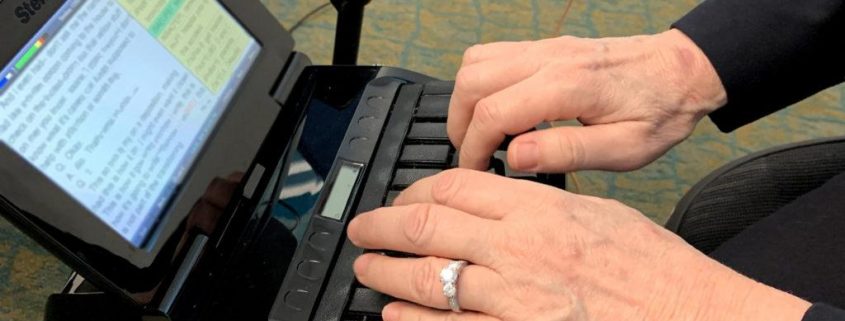Will Technology Replace Court Reporters?
The importance of an accurate record of legal proceedings cannot be emphasized enough; in many cases, lives literally depend on it. This is why the role of court reporter is such a vital part of the judicial system and will continue to be so even in this age of electronic technology. Some courts have begun experimenting with various recording technologies designed to replace the court reporter which has raised concerns in the legal community and may actually result in an increased demand for court reporters.
Some states are making a move away from traditional court reporters to digital recording systems such as For the Record (FTR). There are two reasons cited for this trend:
- Digital systems cost less to install and maintain than paying multiple court reporters an average salary of $45,000 per year.
- The number of court reporters reaching retirement age is significantly higher than the number of individuals entering the field.
In both instances, the use of digital systems has met with opposition from judges, attorneys and court reporters alike. A Massachusetts news outlet cites instances where recording systems are inferior to live court reporters:
- Digital Recording systems cannot adapt to extraneous noises such as windows and doors closing and opening, construction noise and activity in corridors outside of courtrooms.
- In one instance the recording system shut off during a homicide trial causing 30 minutes of testimony to be lost.
- Gaps in transcripts occurred and were attributed to simultaneous speech, unclear speech, background noise and low audio.
The problems inherent in digital recording systems could lead to higher trial costs because of inaccuracies and omissions. Transcriptionists are still needed to provide a written copy of the recorded proceedings, but without the ability to physically interact with the court to ensure clarity and accuracy, the digital recording systems leave much to be desired.
The Future of Court Reporting
It is unlikely that digital audio recordings of courtroom proceedings will lead to the extinction of traditional court reporters. Recordings will still need to be transcribed as accurately as possible when they are used, but it seems doubtful that all courts will replace the reliability and accuracy of human beings as court reporters. It is much more reasonable to expect the need for qualified court reporters to become certified in real time court reporting, especially when working in higher courts where more is at stake and transcript requests are most common. Remember, too, that not all court reporting duties take place at a trial. Court reporters are also used in the following arenas:
- Arbitrations
- Board of Directors meetings
- Stockholder meetings
- Convention sessions
According to the National Court Reporters Association, the average age of current court reporters is approximately 51 years. They estimate that in 2018 there will be just under 28,000 working reporters; however, there will be a need for just over 33,000. Because of problems with current electronic recording technologies, these numbers are likely to remain accurate and in areas where funding for new technologies is not available the demand for live court reporters could be even higher.
Are you in need of a court reporter in Colorado or anywhere across the US? Please contact us today!






